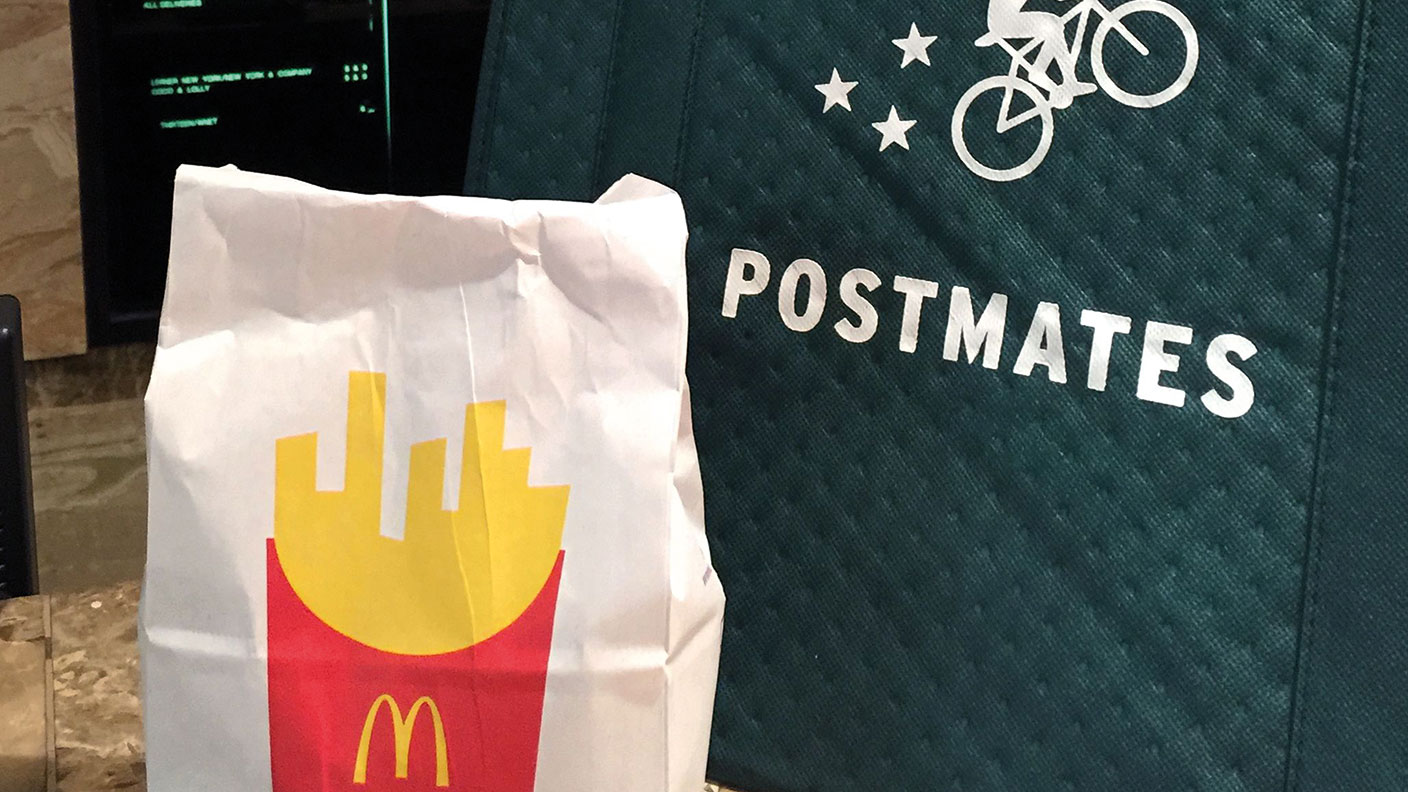Uber gobbles up US food-delivery platform Postmates
Shares in minicab firm Uber jumped by 4% after it acquired food-delivery platform Postmates for $2.65bn.


Get the latest financial news, insights and expert analysis from our award-winning MoneyWeek team, to help you understand what really matters when it comes to your finances.
You are now subscribed
Your newsletter sign-up was successful
Want to add more newsletters?
Shares in Uber jumped by 4% after it acquired food-delivery platform Postmates for $2.65bn, says Bloomberg. The deal, designed to bolster Uber’s food arm Uber Eats, is the culmination of four years of discussion. It follows Uber’s failed bid to acquire GrubHub, which was instead “scooped up” by Just Eat Takeaway.com for $7.3bn. Postmates was “one of the first to let customers in the US order meal delivery using a mobile app”.
The deal, which will keep the Postmates app running separately for now, suggests that Uber, “under pressure” as its core ride-hailing business reels from global lockdowns, is “trying to expand its reach in the food-delivery business”, says Michael Cogley in The Daily Telegraph. In particular, Uber Eats is keen to dislodge DoorDash from its spot as the food-delivery market leader in the US.
While Postmates’ 8% share of the overall US market is much smaller than Uber Eats’ 22%, it has important “strongholds” in the southwest of the US and in the city of Los Angeles. The deal won’t change the “woeful” economics of food delivery, especially since both companies are currently losing money, says Jennifer Saba on Breakingviews. What’s more, even though Postmates has a relatively small share of the market, regulators will certainly want to “take a close look at the deal’s effect on competition”.
Try 6 free issues of MoneyWeek today
Get unparalleled financial insight, analysis and expert opinion you can profit from.

Sign up to Money Morning
Don't miss the latest investment and personal finances news, market analysis, plus money-saving tips with our free twice-daily newsletter
Don't miss the latest investment and personal finances news, market analysis, plus money-saving tips with our free twice-daily newsletter
Still, there are benefits, including an estimated $200m in cost savings achieved by “slashing overhead, sales and marketing”. The merger will also give an indication as to “how regulators will respond to the $55bn ride-hailing firm’s future acquisitions”.
Get the latest financial news, insights and expert analysis from our award-winning MoneyWeek team, to help you understand what really matters when it comes to your finances.

-
 Invest in the beauty industry as it takes on a new look
Invest in the beauty industry as it takes on a new lookThe beauty industry is proving resilient in troubled times, helped by its ability to shape new trends, says Maryam Cockar
-
 Should you invest in energy provider SSE?
Should you invest in energy provider SSE?Energy provider SSE is going for growth and looks reasonably valued. Should you invest?
-
 Has the market misjudged Relx?
Has the market misjudged Relx?Relx shares fell on fears that AI was about to eat its lunch, but the firm remains well placed to thrive
-
 8 of the best properties for sale with minstrels’ galleries
8 of the best properties for sale with minstrels’ galleriesThe best properties for sale with minstrels’ galleries – from a 15th-century house in Kent, to a four-storey house in Hampstead, comprising part of a converted, Grade II-listed former library
-
 The rare books which are selling for thousands
The rare books which are selling for thousandsRare books have been given a boost by the film Wuthering Heights. So how much are they really selling for?
-
 How to invest as the shine wears off consumer brands
How to invest as the shine wears off consumer brandsConsumer brands no longer impress with their labels. Customers just want what works at a bargain price. That’s a problem for the industry giants, says Jamie Ward
-
 A niche way to diversify your exposure to the AI boom
A niche way to diversify your exposure to the AI boomThe AI boom is still dominating markets, but specialist strategies can help diversify your risks
-
 New PM Sanae Takaichi has a mandate and a plan to boost Japan's economy
New PM Sanae Takaichi has a mandate and a plan to boost Japan's economyOpinion Markets applauded new prime minister Sanae Takaichi’s victory – and Japan's economy and stockmarket have further to climb, says Merryn Somerset Webb